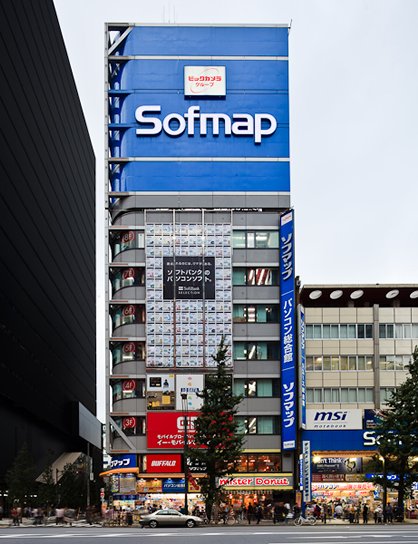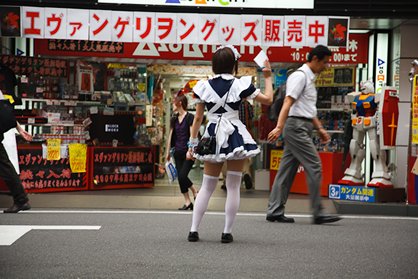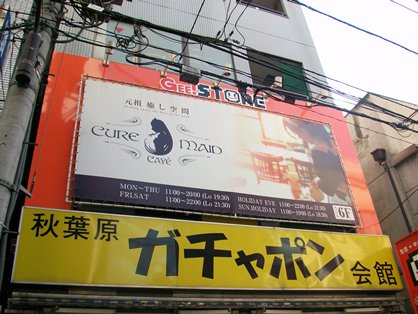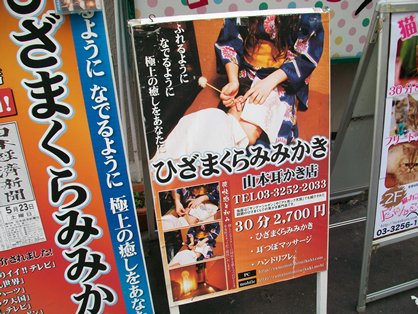The secret shops of Akihabara
Take a tour through the back alleys of Japan's Electric Town
Sofmap is one the largest game stores in Akihabara. It carries a wide selection of used consoles and recently released games on its first two floors. But the third floor is where all the action is. Crammed full of used games for every platform since the introduction of the CD, Sofmap is a collector’s paradise. If you’re looking for an obscure Sega CD or 3DO game, Sofmap will have it. Sofmap’s selection may not be as broad as Super Potato’s but, but the prices are much more reasonable, making it a great destination for bargain hunters.

Above: Sofmap is another great destination for collector’s and bargain hunters

Trader’s three-floor store can’t compete with the large retro library at Super Potato. It also doesn’t have as wide a selection as Sofmap, or the newest foreign titles, like Messe. So why is it on this list? Because Trader is the most popular place to sell and trade games in Akihabara. With so many games being bought and sold every day, you can always find something interesting at Trader. It’s also a great place to find used copies of new games that are sold out at some of the larger super stores in Akihabara. If a game is sold out at Messe, you can be sure to find several used copies at Trader for a reasonable price.
The growing number of otaku in Akihabara in the late 90s created a demand for nerd-friendly places to socialize. Maid cafes soon filled that niche. The first maid cafe, Cure, was established in 2001. Copycats soon sprang up all over the area and competition grew fierce. While maid cafes were originally created as safe havens for social interaction, proprietors soon discovered a market in catering to some of baser fetishes lurking in the depths of the otaku psyche.

Above: A maid passes out fliers on the streets of Akihabara
The “maids” at maid cafes will often don other sexualized costumes, which cater to fantasies that idealize young girls. You’ll find women dressed in middle school PE outfits at the Angel Cafe, for example. While at the Nagomi Patch Cafe, servers pretend to be the little sisters of customers. Many cafe customers also pay to have maids accompany them as they shop for videogames and anime.

Above: Akihabara’s first maid cafe, Cure
Sign up to the GamesRadar+ Newsletter
Weekly digests, tales from the communities you love, and more
Maids wait on their customers with great care, but are often expected to abuse patrons as well. At Nagomi Patch Cafe, maids fake giant mood swings so as to be more like “real little sisters.” Otaku perceptions of women do not tend towards the mature, feminist, or progressive. At the Angel Cafe, customers can play a strange game of “janken” (rock, paper, scissors). If they lose, they’re required to drink a particularly disgusting concoction containing fermented soy beans, oolong tea, and other mysteriously noxious ingredients. To make the situation even more painful, if the customer loses two rounds of janken in a row, the maid slaps them across the face hard enough to leave a hand print. The strange combination of sexual taboos, misogyny, and masochism found in cafes like these is quite common.
While the sexual context of these establishments is obvious, maid cafes are not brothels. This stands in stark contrast to Japan’s more mainstream “hostess bars,” where business men pay outrageous prices for alcohol and conversation with beautiful women. Many of these hostess bars are known for facilitating prostitution between their employees and customers.

Above: You won’t find any women dressed as schoolgirls at this ear cleaning cafe


